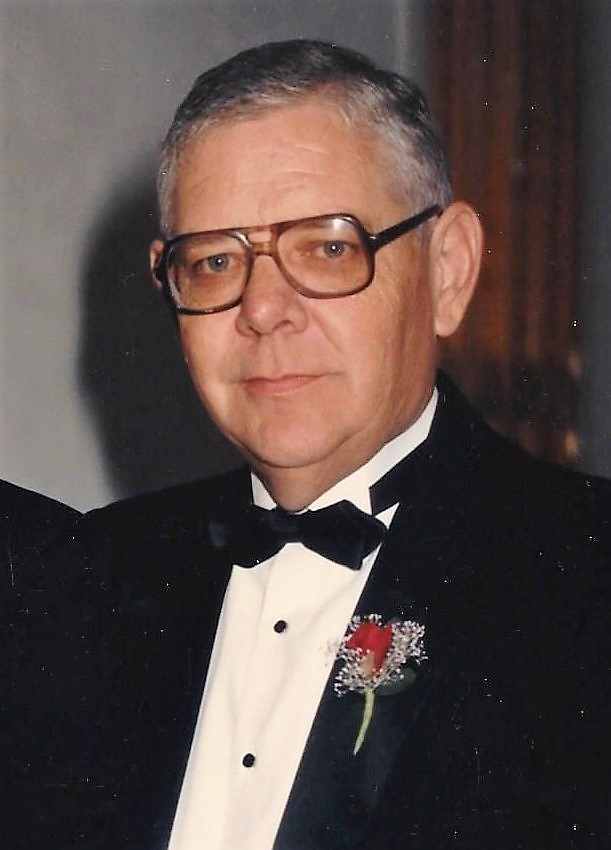
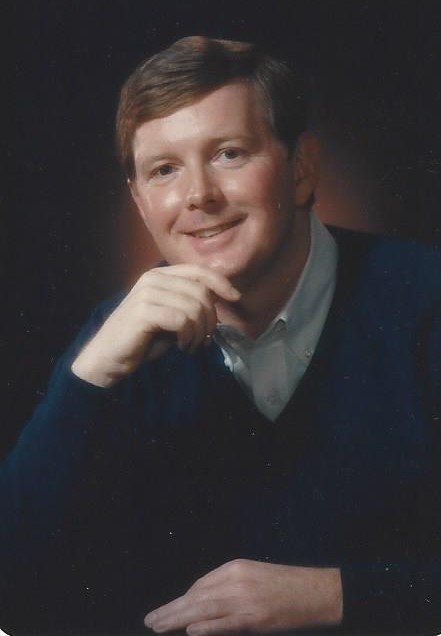
An Interview With
Lewis N. Foster on (1991)
Multiple Family Group Therapy


Jack Tobin Lewis Foster
Jack Thanks for taking the time to talk with me today. Will you share a little about yourself for the readers?
Lewis Yes. I'm married and have two sons. One is ten years old and the youngest is ten months old. My wife is a Registered Nurse and I Coordinate the Family Counseling Program at Bruce Hall Center here in Florence, S.C. I have held this position for the past six years. I am credentialed as a Master Counselor and I'm a National Certified Addictions Counselor, level two (NCAC-II). For fun, I enjoy spending time with my family, cooking, working in the yard, camping, fishing, riding my bicycle and playing the guitar. Recently I've purchased a computer and I enjoy putting information about Multiple Family Therapy into the computer. I'm writing some as well.
Jack How long have you been working in the field of addiction?
Lewis I came to Bruce Hall from Open House Counseling Service in Charlotte, N.C. in 1984. Prior to joining Open House (now McLeod Addictive Disease Center) I worked for the Edgcombe/Nash Mental Health Center in Rocky Mount, N.C. as a Teaching Parent and Social Worker in their group home called Crossroads. So, I've been working in the field of addiction for ten years which doesn't include the time at Mental Health working with adolescents in a group home setting.
Jack I think you were in the military too.
Lewis That is right, I served about three and a half years on active duty with the U.S. Air Force during the Vietnam conflict as an Morse Intercept Operator and Direction Finder. I intercepted Morse code being transmitted by countries around Europe from a listening post in southern Italy for a year and a half and then I was put on flying status and went through basic survival school, water survival, jungle survival and escape and evasion training and a simulated POW camp training program before being sent to Thailand. I flew 63 combat missions out of NKP and Ubon, Thailand. We flew over and around Laos, Vietnam and Cambodia. I was awarded two Air Medals and Permanent Aircrew Wings. I also served twelve years with the N.C. Air National Guard supervising in a communications center.
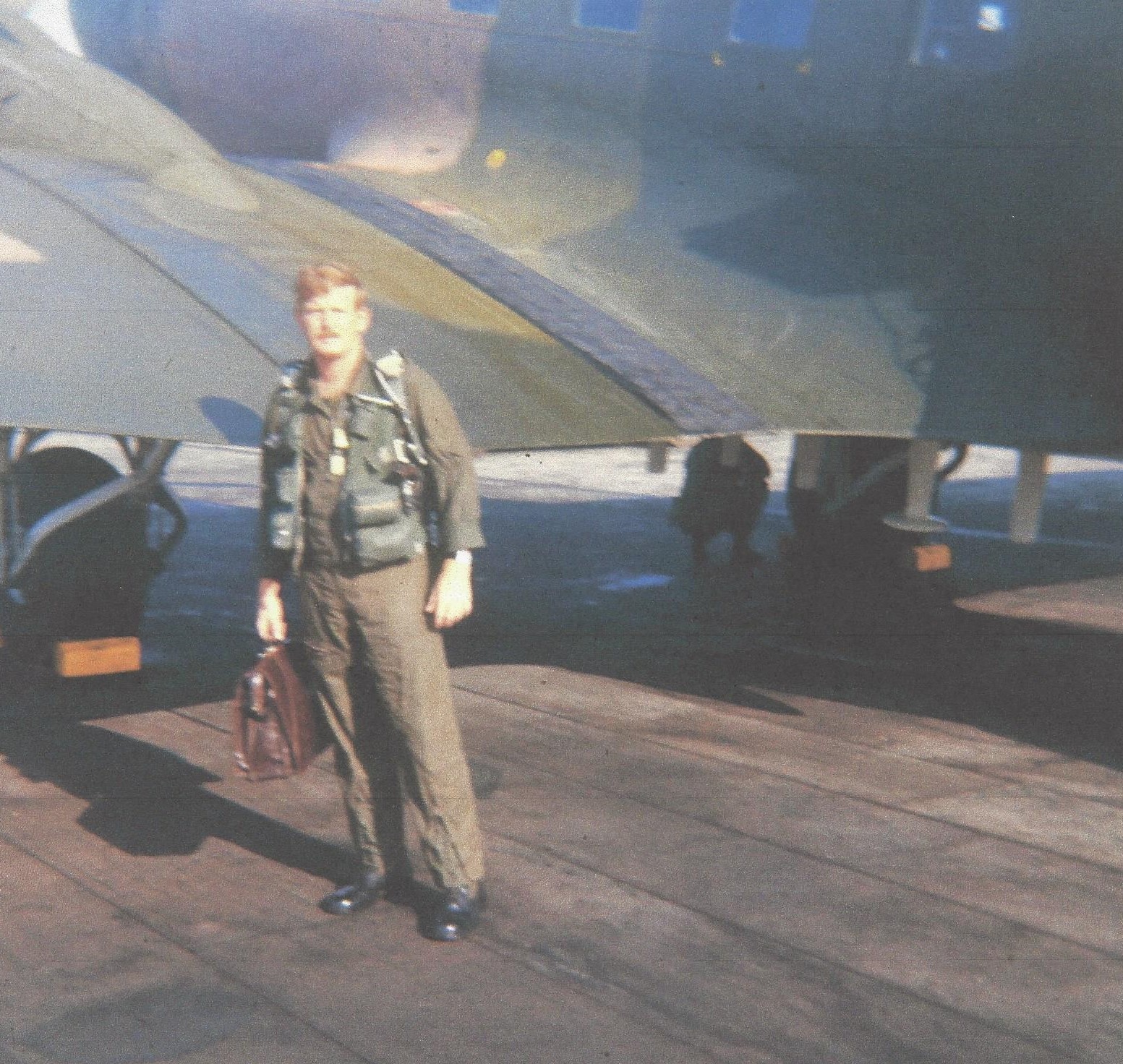
TSgt Lewis N. Foster Next To EC-47 in Thailand 1973-1974
Jack Why did you get into the counseling field?
Lewis That is a good question. In the beginning, I think I was looking to help other people. What I have discovered since is that I was looking to help Lewis. Maybe save my own family. It seems that I went through the back door to get help for myself. My story begins with a sixteen-year-old mother and a twenty-three year old father. My mother (according to her) grew up in a home in which her father was abusive and an alcoholic and she was looking to get out. My father had recently returned from Europe fighting in World War II and I think he was looking for someone to need him. Both came from family systems that were rigid. At age 28 my mother had five children, a husband who was traditional for that time and she was getting few of her needs met. She left my dad with five children and began searching for herself. At age fifty, I think she found some peace, but died of cancer two years later. My two brothers and two sisters and I were placed at one on the Baptist Children's Homes at Thomasville, N.C. I lived there until I graduated from High School and then entered the Air Force after struggling for a few months. Most of my military experience was good, but something happened to me during the sixty-three combat missions that I flew as a crewmember on the electronic surveillance EC-47 aircrafts in and around Laos, Cambodia and Vietnam. The stress began to surface after I returned to the States and I developed a very bad attitude. I think that the Air Force was pleased to discharge me. I received an early discharge because I was accepted by North Carolina Wesleyan College as a student in the Fall of 1974. My plans were to enter the Behavioral Studies program at Wesleyan and my supervisor supported the early release. I attended Wesleyan and graduated in the Spring of 1977. It was not my plan to become an addictions counselor. In the early years, I was more concerned with survival and paying bills. When I arrived at Open House in 1981 things seemed to fall into place. It was as if I had come home. Some caring people taught me what they could and helped me personally and professionally. This was true at Mental Health in Rocky Mount, N.C. and here at Bruce Hall in Florence, S.C. God knows I needed it. So, I kind of stumbled into specializing in the treatment of addictions. No pun intended.
Jack How is it that you began doing Multiple Family Group Therapy?
Lewis I give two people credit for my interest in Multiple Family Group Therapy (MFGT). John T. Edwards, Ph.D. told me about MFGT while he was training a group of us in Charlotte at the Randolph Clinic. He contracted with Randolph Clinic and Open House (now McLeod Center) to provide training in the Structural and Strategic Models of Family Therapy to their staff. One day in training Dr. Edwards mentioned H. Peter Laqueur, MD and his work in multiple family therapy groups. A spark went off in my head and heart and the seed was planted. I was lucky to have been able to join the training group and a gold mine of knowledge and experience was gained by all over a two-year period. The other person is Father Joseph Martin. In his film, Alcoholism and the Family, he mentions "Ala-Family" and "families helping families". That video reinforced what I had learned from Dr. Edwards and then I was on a mission. The idea of multiple families in a group setting excited me and I knew it would work. I didn't know anything about it, but the idea made sense. Therefore, with my supervisors (Campbell Peery) support I began calling families of patients on my caseload in the Therapeutic Community and to my surprise they all agreed to come to the multiple family group meeting on a Sunday afternoon. Dr. Edwards was with me for the first three sessions and consulted with me weekly thereafter for a couple years. Monthly he observed the group and provided support. MFGT was a Godsend to me. When I learned about it something in me was alerted and I knew that I had to do it. I found my bliss. Joseph Campbell speaks about "following your bliss". Well, I did follow my bliss.
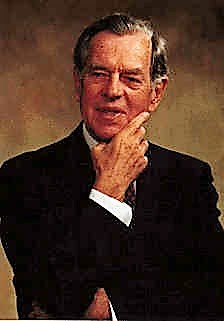
Joseph Campbell
Jack I have talked to people who have been in your workshops and I have observed you in Multiple Family Therapy. They say that you are a master at both. How do you see yourself?
Lewis (Long pause) I think I'm good at what I do. My work and abilities have evolved over the years and there is creativity in my therapy today. To begin with I emulated my trainers and occasionally my own voice would speak and surprise me. As I continued to lead Multiple Family Therapy Groups that voice became my fingerprint and the therapy became my own. I have learned to deal with emotions better than I could fifteen years ago and have an improve understanding of myself. I am a dreamer and I work to make some of my dreams come true. At times, I tend to deal more on an emotional level at work than I do at home. I am working on this and growing as a husband and father. I think that if I don't deal with my own issues then I will not allow others to deal with their issues, especially if they reflect mine in any way. Many people have influenced me professionally. Most importantly are the families who trusted me, made themselves vulnerable, and taught me how to help them do the therapy. I focus on the process and they focus on the content. Peter Laqueur, Salvador Minuchin, Jay Haley, Carl Whitaker, Milton Erickson, Thomas Harris, Fritz Pearls, Norman and Betty Paul, and Robert and Mary Goulding, to name a few. They will never know the influence they have had on my development. There was some divine guidance as well.
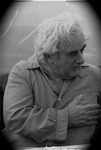
H. Peter Laqueur, MD In A Multiple Family Therapy Session (1909-1979)
Jack Peter Laqueur is the Father of Multiple Family Therapy. Since his death in 1979 has there been any change in the modality?
Lewis That is a very interesting question. The answer is, yes, and I don't know. I think there are professionals all over the world using Multiple Family Therapy to work with all types of families. I don't know about them or what they are doing. Here in South Carolina MFGT is widely used in the treatment of addiction. It may be that South Carolina is leading the nation. Alexander Hyde, M.D., who has been doing MFGT for years, uses it with mentally ill patients in Columbia, S.C. I learned about Dr. Hyde last January (1991). Some Mental Health Centers in Western North Carolina use MFGT. The most significant change in the use of MFGT has been its move from the Mental Health Center setting where Laqueur began his work to the Addiction Treatment Centers. This has called for redefining theoretical frames and creating new techniques. All of this has taken place without a system to share ideas or provide a starting point for young therapist entering the field. There are a handful of articles published on MFGT, but the only training program that I know of is at Bruce Hall Center here in Florence, S.C. Some colleges introduce students to the concept. To learn about MFGT one must observe and do MFGT. We need of a system to pull Multiple Family Therapists together. A forum for sharing, learning, supporting, and growing, rather than existing alone in pockets around the world. My guess is that we will run into people that have developed ideas and styles and are willing to share them. I setup a website on free America On Line (AOL) space that has information about MFGT. Did I answer your question?
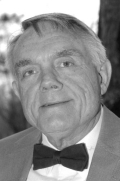
Alexander Hyde, MD
Jack Yes, have there been any changes in technique?
Lewis The difference is in process, content and style I think. The theoretical frame that I have developed uses concepts from H. Peter Laqueur, M.D., Ludwig von Bertalanffy and General Systems Theory, Structural and Strategic Models of Family Therapy, Redecision Therapy, theories about Addiction and Recovery, and my own experience. During a MFGT session, I use the stages of a family therapy session found in the Strategic Model, which are systemic and they are the social stage; problem definition stage; interaction stage; and the contracting or closing stage. The process of a MFGT session was clearly defined by Laqueur. He said that the leader is like an orchestra conductor who generates a theme, joins and interacts family to family, assesses situations, creates verbal and behavioral interventions, and therapeutically dances with the group. Marianne Corey and Gerald Corey use the initial stage as a time of orientation and exploration; the transition stage as a testing ground where feelings of anxiety, defensiveness, and resistance are displayed; and the working stage where safety and trust have been established and personal or group work can begin. As I watch video tapes of Laqueur he seems to remain more central during the session than I do. When families enter treatment due to addiction, the focus is on intervention. Johnson Institute provides a quality program to emulate. That is what our family program here at Bruce Hall Center is designed to do. We bridge the way to therapy through education (edu-therapy or psycho-education), get the family ready to nonjudgementally (in a loving way) confront the identified patient, confront the identified patient, and make plans for continuing care. Generally, the identified patient goes through the same process over a two-week period before seeing their family in a MFGT session. The patient confronts the families' codependency and enabling. We are detoxing the identified patient and the family. Many techniques have evolved to move the families through this process. One that I use is called, "Cutting the Apron String". Jack W. Tobin, M.A., Treatment Director at Rubicon Counseling Center in Hartsville, S.C. and his wife gave birth to this idea which he and his wife (Nancy) used to launch their two boys off to college.
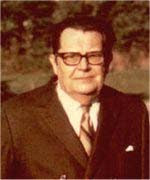
Ludwig von Bertalanffy 1901-1972
An ordeal is created around getting ready to leave home before the parents stand facing the Identified Patient. A strip of paper is used to represent the apron string and a pair of scissors is given to the parents. They are directed to say what they need to say before setting their child free and cutting the apron string. The identified patient is asked to share what he/she needs to say before the parents cut the apron string. When the apron string is cut, both ends are kept as a reminder.
The experience is usually an emotional one and everyone in the MFTG is involved and learning. All the group members are asked to share what feelings they experienced during the exercise and what came to mind about their own situation. I ask the identified patient if he/she would like to ask for feed-back from the group about their experience while he/she was going through the ordeal and then direct the groups response at the same time. Everyone who does Multiple Family Therapy, at some point, develops their own style. They learn to use the total self as a tool in the Multiple Family Therapy Group. Self is the foundation of style.
Jack What do you see in the future for Multiple Family Group Therapy?
Lewis I think that by the turn of the century there will be more published and these publications will provide models for working with different disorders. In addition to addiction, there are different types of mental illness, which produces stress on the family. There is retardation, senior citizens homes, children's homes, group homes, halfway houses, physical illness, death, prison, and soldiers returning from war or going to war, to name a few. MFGT is a potential resource to work with the families. I hope there will be a support system for Multiple Family Therapists and training programs for therapists, administrators, trainers, and possibly a certification process. I think there will be more input from around the world. I hope the MFGT website grows as well.
Jack If someone wanted to learn more about Multiple Family Group Therapy where would you suggest they begin?
Lewis Check with local Mental Health Centers and Addiction Treatment Centers to see if MFGT is being used and ask to observe. Do an internet search for MFGT. I enjoy talking about MFGT and will respond to any caller or email. The second Annual Multiple Family Therapy Workshop will take place on January 13 & 14, 1992 at Bruce Hall. Also, an Advanced Family systems workshop is offered by the S.C. Commission on Alcohol and Drug Abuse (SCCADA) in October annually. Multiple Family Therapy will be discussed during this four day workshop. Call the Training Department at SCCADA for information.
Jack Do you think there is a minimum amount of training one would have before running a Multiple Family Therapy group?
Lewis Therapists interested in doing MFGT would serve the families and themselves well by having a quality theoretical background in family therapy. Chose a model and learn it. Attend workshops where the model is being presented. Observe others using the model. Read and look for opportunities to discuss the model with others who use it. Begin co-leading family therapy sessions and process afterwards. Video tape or audio record the sessions and review them. While you are doing this look for ways to integrate what you are learning with Multiple Family Therapy. Get involved with others who are MFGT leaders. Observe sessions; attend workshops, read anything you can find on MFGT. Become a co-leader in a MFTG. Ask questions until you get the answers you are looking for. Study H. Peter Laqueur's model of Multiple Family Therapy. Once a theoretical base from which to work is learned, it is reasonable to observe and co-lead multiple family therapy groups before attempting to lead the sessions yourself. It is difficult to say how long this should take place. I started leading multiple family groups while I was in family counseling training, and there was very little known about the model, but I had my family counseling trainer as a co-leader for three sessions. I have seen a therapist who was ready to lead the MFT group after observing and co-leading a few sessions. She is very talented and had an experienced co-leader. The trainer and the trainee need to consider this carefully. I am not sold on the idea that a specific number of hours in theory, observation, supervision, etc., determines that one is a qualified Multiple Family Therapist or Family Therapist. It takes time to master your style. When your therapy is as individual and distinctive as a fingerprint, it speaks to everyone.
Jack I've enjoyed this interview and it has been an honor and a pleasure to watch you lead the Family Program at Bruce Hall.
Lewis Thanks
End